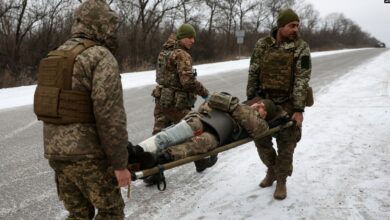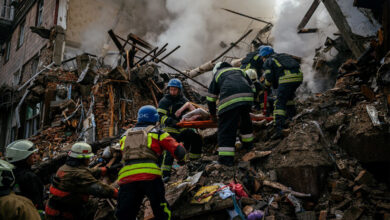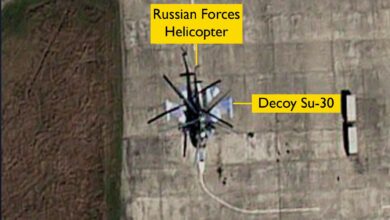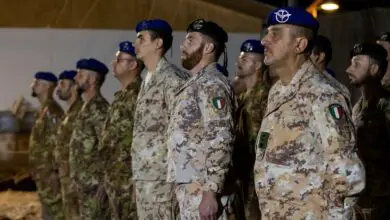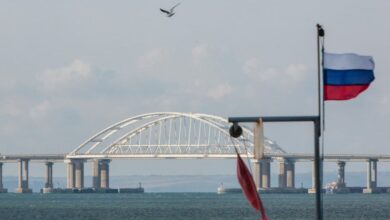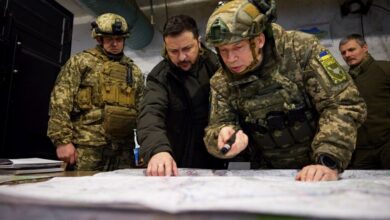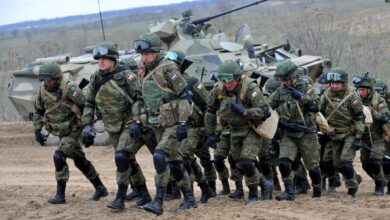
After Russia’s invasion of Ukraine and the subsequent massive Western sanctions, many predicted the ultimate doom of Vladimir Putin’s authoritarian regime and of Russia in general.
However, what various pundits mostly missed is the premise that the final impact of this war, as well as of the punishing sanctions, mainly depends on whether Putin wins his war in Ukraine and how decisive this victory will be.
A decisive win means Russia would succeed in occupying the whole of Ukraine, effectively subdue it, and directly integrating all or part of the territory into Russia while installing a puppet government over the non-incorporated portion.
There can be more modest, less definite versions of the supposed Russian victory. The least of it must succeed in imposing a neutral and demilitarized status over Ukraine, along with retaining the earlier annexed Crimea and pre-war held territories in Donbas.
This will provide some degree of face-saving outcome for the Kremlin. Anything less, however, can appear as a Russian defeat with far-reaching consequences.

Overall, the more decisive the Russian victory in Ukraine is, the greater domestic legitimacy Putin will be able to reap as a result. This can safeguard Putin from internal political enemies and would-be regime defectors — at least for the foreseeable future.
Future of Former Soviet Republic
Furthermore, the more complete the Russian victory, the more it will enable Putin afterward to impose direct control over all other former Soviet republics (except for the NATO member Baltic countries), turn them into client states, and reinstate some reshaped version of the Soviet empire, with Russia as its core.
It’s highly unlikely that there will be much, if any, resistance from the West to impede this process after Moscow’s supposed victory in Ukraine.
In general, the successful conquest of Ukraine can establish Russia and its newly acquired satellites as a separate, distinctly anti-Western power block with a radically conservative ideology, something Putin has actively been championing since 2012.
Hence, the mid-term and even the long-term future of former Soviet republics depends not only on a possible Russian victory in Ukraine but also on how decisive that victory will be.
Economic and Political Isolation
As far as economic and political isolation is concerned, Moscow is no stranger to these either. If the 20th-century Russian history is any indicator of the future, Russia may well survive the Western sanctions and accompanying isolation.
The Soviet Union, from its inception in 1922 to the outbreak of WWII, was a heavily isolated country, both economically and politically.
Yet it survived and even managed to pull off a large-scale industrialization process under Joseph Stalin, which turned an agrarian, backward country into one of the world’s economic powerhouses.
Compared to the Soviet Union of the 1920s and 30s, modern Russia, even as isolated from the West as it is now, still has more options to break out and deepen its economic ties with dozens of countries in Asia, Latin America, and Africa. This will undoubtedly help Putin’s regime alleviate the Western sanctions’ destructive impact, at least partially.

Down the road, it’s even feasible that some major future conflict in the world might force the West to seek Russian cooperation, similarly to how it reached out to Stalinist Soviet Union at the outbreak of WWII.
This will take away the current pariah status of the ruling Russian regime and help vindicate and re-legitimize it as the international player, again similarly to how WWII helped Stalin vindicate his criminal regime and the Soviet Union.
It will also “legitimize” the Russian conquest of Ukraine, lift the sanctions, and end Russia’s economic isolation.
Russian Defeat in Ukraine
On the other hand, a Russian defeat in Ukraine may lead to rapid defection from the regime, massive protests, and subsequent political chaos, which can contribute to Putin’s downfall.
The result can be the rise of another strongman with a more conciliatory stance towards the West or even the rise of a whole new democratic regime. It will depend on the potency of Russia’s grassroots democratic movements, which do not seem too strong at this stage.
Furthermore, the Russian defeat in Ukraine and unfolding economic crisis may even plunge the country into larger chaos and lead it to territorial disintegration, the outcome that took place in Russia twice in the 20th century: first after the 1917 Revolution and then as a result of the fall of the Soviet Union.
Such an outcome will have major geopolitical, economic, social, and cultural repercussions for Eurasia.
As the war in Ukraine largely hangs in the balance, the only thing that is certain is the absolute uncertainty of the mid and long-term impact of the war and the subsequent Western sanctions on the durability of Putin’s regime and Russia itself.
 Vasili Rukhadze is Visiting Lecturer of political science at the University of Pittsburgh, specializing in post-communist and post-Soviet politics and international relations.
Vasili Rukhadze is Visiting Lecturer of political science at the University of Pittsburgh, specializing in post-communist and post-Soviet politics and international relations.
Before joining the University of Pittsburgh, Rukhadze was an analyst for the Jamestown Foundation, regularly contributing analytical articles to one of its flagship publications: Eurasia Daily Monitor.
Rukhadze authored three books. His latest, The Causes of Post-Mobilization Leadership Change and Continuity: A Comparative Analysis of Post-Color Revolution in Ukraine, Kyrgyzstan, and Georgia, was published by the University of Michigan Press and has been nominated for the 2022 Joseph Rothschild Prize in Nationalities and Ethnic Studies.
The views and opinions expressed here are those of the author and do not necessarily reflect the editorial position of The Defense Post.
The Defense Post aims to publish a wide range of high-quality opinion and analysis from a diverse array of people – do you want to send us yours? Click here to submit an op-ed.

